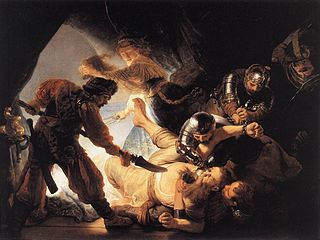 The biggest crimes stand in the open; what prevents people from seeing them is simply their size and the fact that they are crimes. We can’t believe that such large evils are possible. They have to be explicable some other way. And so we notice them for only the blink of an eye, immediately conjuring a rationalization to save ourselves from the sight.
The biggest crimes stand in the open; what prevents people from seeing them is simply their size and the fact that they are crimes. We can’t believe that such large evils are possible. They have to be explicable some other way. And so we notice them for only the blink of an eye, immediately conjuring a rationalization to save ourselves from the sight.
It’s really terribly impressive: Toss a fact at a human who can’t bear to see it and he/she will devise a passable escape in a fraction of a second. Cut the first escape down and a second will follow in another second or two. Humans are brilliant thinkers when things get serious, and not just the “smart” ones – a merely mundane intellect can do this shockingly well.
Can you imagine what we could do if we applied that brain-power to something better than defending our blindness?
But rather than running you straight into a difficult sight, I’ll just explain that these crimes nearly always share a core component, which is the restraint of human abilities. And I’ll paint a background for you with a quote I’ve used before, from G.K. Chesterton’s book, The Defendant:
There runs a strange law through the length of human history – that men are continually tending to undervalue their environment, to undervalue their happiness, to undervalue themselves. The great sin of mankind… is the tendency, not towards pride, but towards this weird and horrible humility. This is the great fall, the fall by which every man… in the fullest and most literal sense, forgets himself.
If Chesterton was right and if I’m right, we have failed to see ourselves, and the fact that this is so very large, is what keeps us down.
The question then becomes, What are we really? That is a question I can answer.
We Are Engines of Creation
Just about everyone in the modern West is bombarded with assertions that mankind is nasty, stupid, unfit, and disgusting. We’ve heard them for so long that we define ourselves as being different than the vile herd.
In other words, we take humanity being bad as a given and portray ourselves as “other” in one way or another.
And yet, the people we know are mostly decent. They have their errors and shortcomings, but most days and in most ways, they are reasonably reliable and humane.
We’ve been made to not see the good.
I say this because I want you to consider that this deep bias has been foisted upon us by those who reap from it.
I’d also like you to consider that humanity is, by nature, far, far better than advertised. Here are the basics in four quick points:
- All inanimate things are entropic. Eventually they all wind down and wear out.
- Living things reverse entropy. A fruit tree, for example, takes in gasses from our atmosphere, light from the sun, minerals and water from the ground. Then it organizes, concentrates, and harmonizes them… and produces fruit. This is perhaps the central characteristic of life.
- Plants and animals reverse entropy in defined channels. Each is able to reverse entropy in certain pre-programmed ways, but not in others.
- Humans can reverse entropy willfully. We choose how we will reverse entropy, and we do so almost infinitely. Or, we can evade such choices.
Humans, then, are inherently creative beings. We cannot create matter out of nothing, but we can mold it to an infinite number and variety of uses. We are fountains of new and beneficial action in the universe.
Human life, then, is a cardinal value, making the restraint of human life a cardinal offense.
I could go on about this at length, but what’s noted above is sufficient. The restraint of human creativity is the ultimate crime, and it is so pervasive, so huge, that allowing ourselves to see it is a major challenge.
I’ll close with another passage from the same book by Chesterton:
Every one of the great revolutionists, from Isaiah to Shelly, have been optimists. They have been indignant, not about the badness of existence, but about the slowness of men in realizing its goodness.
We are more and better than we have imagined, and once we allow ourselves to see it, we’ll become more and better in actual fact.
**
